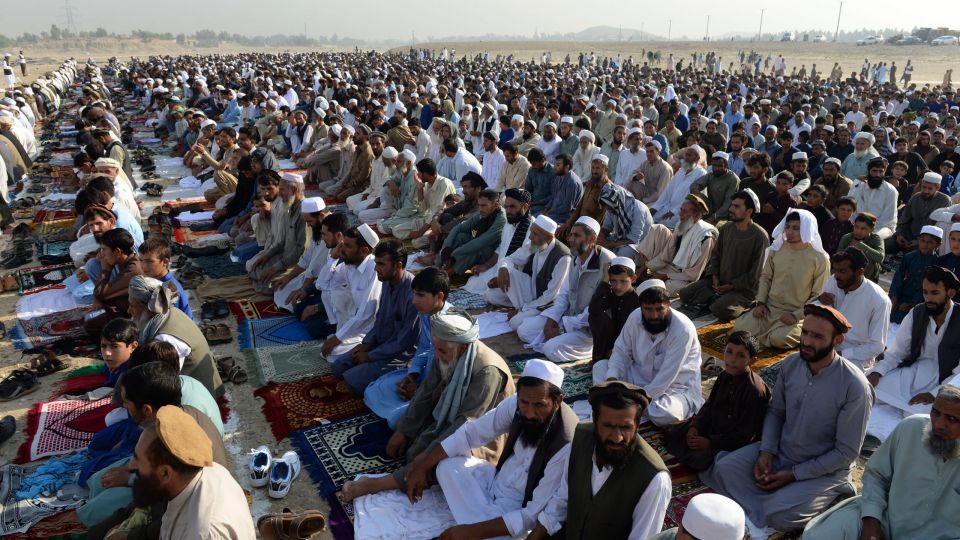March 5, 2020
Besides Saudi Arabia’s step of suspending umrah pilgrimage, several major gatherings around the world have also been cancelled or postponed.
Public events across the world are being curbed to limit the spread of the coronavirus, as the number of infections crossed 94,000 globally.
In an unprecedented move, Saudi Arabia has suspended umrah religious pilgrimage for its citizens and residents to the two holy cities of Mecca and Medina, saying it wanted to prevent the virus from spreading through the “intense flow” of crowds to the holy sites.
The measures ordered yesterday expanded on restrictions applied last week to Muslims coming from abroad making the same religious pilgrimage and to other incoming tourists.
Saudi Arabia has one confirmed case of Covid-19.
The World Health Organisation (WHO), which had earlier urged countries to make containment a top priority, called on event organisers to assess the risks of mass gatherings in consultation with local public health authorities.
It noted that there was no one-size-fits-all strategy for tackling the outbreak.
“National authorities should make proportional, evidence-based decisions about these types of issues based on their assessed risk of holding the event in their country,” said WHO spokesman Tarik Jasarevic, in an e-mail response to questions from The Straits Times.
“Similarly, companies and other organisations are at liberty to make their own decisions according to their specific circumstances.”
He added: “Local health authorities should be involved in these processes so that if a case occurs during the gathering, it can be taken care of immediately and effectively.”
The WHO’s interim guidance on mass gatherings issued on Feb 14 calls on event organisers to consider the general features of the virus – including its transmission method, the likely future spread of the epidemic, the clinical severity of the disease as well as treatment options – alongside the specific features of the event.
These include the crowd density, the nature of contact between participants – whether it is a concert or religious event and whether it will be held indoors or outdoors – as well as whether it will be attended by registered participants.
Other factors to consider include the profession of the participants and their possible previous exposure to the virus, the number of participants coming from affected areas within 14 days prior to the event, the age of attendees and their mode of travel.
Besides Saudi Arabia’s step of suspending umrah pilgrimage, several major gatherings around the world have also been cancelled or postponed. Last week, China postponed its annual parliamentary congress, due to begin today.
China, where the virus is believed to have originated in late December, launched unprecedented lockdown measures around the country in January that limited travel.
The Tokyo Olympic Games, due to be held from July 24 to Aug 9, could be postponed, Japan’s Olympic Minister Seiko Hashimoto has said.
But yesterday, Chief Cabinet Secretary Yoshihide Suga said Japan was planning to host the Games as planned. At least 12 people have died from the disease in Japan.
Some high-profile sporting events have been cancelled or postponed, including the World Athletics Indoor Championships.
France, which has recorded four deaths from the virus, last week announced a temporary ban on indoor gatherings with more than 5,000 people.
However, the Louvre in Paris reopened yesterday after it was forced to close for three days, as staff expressed concern about catching the virus from visitors.
The Louvre presented a plan to the staff yesterday on preventing coronavirus infection.
Iran last week called off Friday prayers in 23 of the 31 provinces in the largely Muslim country, including in its capital Teheran.
South Korea, which has the highest tally of cases outside China, has already postponed or cancelled some concerts and sports events.
Last weekend, churches there held online services instead of their usual Sunday gatherings.
In Singapore, event organisers have been advised to cancel or defer non-essential large-scale events.
The WHO advised organisers looking to proceed with their events to consider measures such as having staggered arrivals and minimising congregation at sanitary stations and food and water distribution areas.
Mr Jasarevic said: “Many of the risks can be appropriately managed and even reduced through simple measures.”


